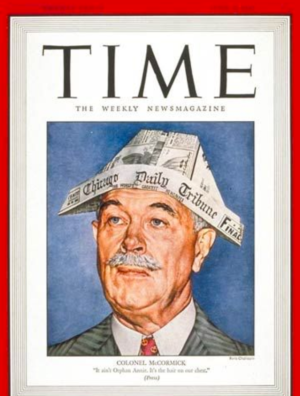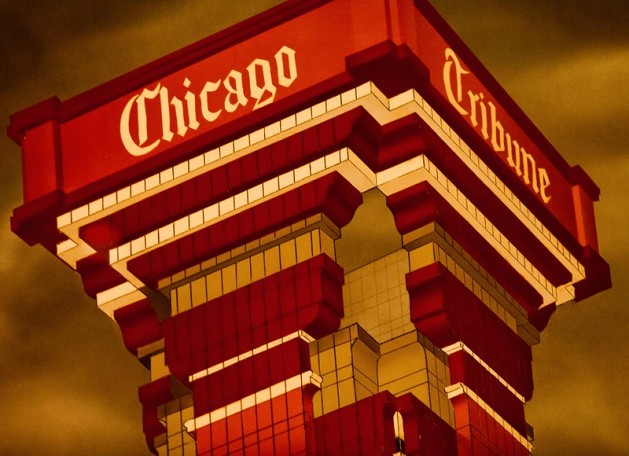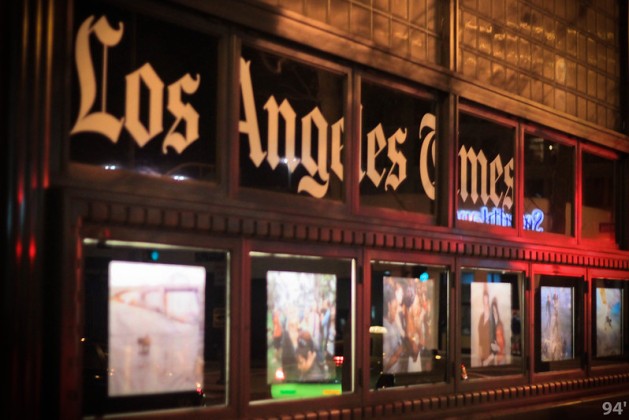
Recasting a media future. Photo (cc) 2007 by Goodwin Steel Castings.
Previously published at GBH News.
Bad news about the media business is nothing new. From the moment that the commercial web slipped into view in the mid-1990s, news organizations have been on the losing end of a long war over how — and even whether — journalism should be paid for.
Some recent developments, though, offer reasons for hope amid the gloom. Consider:
• BuzzFeed recently acquired HuffPost and immediately took an axe to it, laying off 47 employees, with the threat of more cuts to come. I will concede there’s nothing positive about that. But the debacle points to the limits of media funded by venture capital and could encourage more sustainable models.
• The notorious hedge fund Alden Global Capital was on the verge of acquiring Tribune Publishing, whose nine large-market daily papers include the Chicago Tribune, New York’s Daily News and, locally, the Hartford Courant. But a group of billionaire investors led by Baltimore hotel magnate Stewart Bainum stepped forward to propose breaking up the chain and operating the papers locally, some of them on a nonprofit basis. And, at least at the moment, it looks like they might win.
• As media observers had long feared, the departure of former President Donald Trump from the White House led to an immediate decline in news consumption — not just at the cable news networks, but at national and regional newspapers too. Yet the post-Trump slump represents a chance to emphasize local news, which has more of an effect on readers’ actual lives and helps build community.
What a lot of this comes down to is the end of the idea that scale will save the digital news business. “Local doesn’t scale” has long been the motto of community-based entrepreneurs. But now it’s looking like scale doesn’t work at the national level, either, with a few notable exceptions like The New York Times and The Washington Post.
Josh Marshall, founder of a small but successful political website called Talking Points Memo that depends mainly on reader revenue, described the dilemma in a recent essay for The Atlantic. For years, he wrote, venture capitalists kept pouring more and more money into digital news outlets hoping that they would someday become large enough to dominate their rivals, rake in a bounty of ad revenues and give the investors a chance to cash in.
Instead, the digital ad money went to Google and Facebook, leaving these outlets without any way forward.
“The whole digital news industry has been based on lies,” Marshall wrote, adding: “Investors realized that the tantalizing prospect of ad revenue lock-in that had always appeared just over the horizon was an illusion, so they shut off the investment spigot … In digital publishing, scale was the god that failed.”
If bigger isn’t necessarily better, that points to an opportunity for local news, whose tribulations have been the subject of considerable discussion over the past several years. Last November, I wrote that reviving community journalism could help overcome the angry polarization of the Trump era. Now three scholars have conducted a study showing there may be something to it.
According to an overview by Joshua Benton of the Nieman Journalism Lab, the researchers — Joshua Darr of Louisiana State University, Matthew Whitt of Colorado State University and Johanna Dunaway of Texas A&M — conducted a survey of readers after The Desert Sun of Palm Springs, California, decided to drop from its opinion pages all syndicated columns and references to national politics for one month.
Darr, Whitt and Dunaway compared The Desert Sun’s readers to those of a control paper and found that polarization was less than what might otherwise have been expected. The numbers were small and didn’t really prove anything one way or the other. But, as the three wrote, the effect was notably salutary regardless of the actual numbers, since the experiment pushed the paper to pay more attention to what was taking place in its own backyard.
“Local newspapers are uniquely positioned to unite communities around shared local identities, cultivated and emphasized through a distinctive home style, and provide a civil and regulated forum for debating solutions to local problems,” they wrote. “In Palm Springs, those local issues were architectural restoration, traffic patterns and environmental conservation. The issues will differ across communities, but a localized opinion page is more beneficial for newspapers and citizens than letters and op-eds speckled with national political vitriol.”
It’s worth noting, too, that The Desert Sun — a Gannett paper — is small enough to be regarded as a truly local paper. According to the Alliance for Audited Media, the Sun’s combined digital and print weekday paid circulation is 15,862, and 16,993 on Sundays. But will the experiment have a lasting impact?
According to Julie Makinen, the paper’s executive editor, the answer is yes. Although the ban on national politics lasted only lasted for a month, she wrote approvingly about the study last week and added that it “is useful to us in that it helps point the way for further improving our opinion pages as we bring on a new editor for the section.”
Which brings me back to where I started. If scale is “the god that failed,” as Josh Marshall puts it, and if local news and opinions are an answer to rebuilding both journalism and civic engagement, what should come next?
Damon Kiesow of the Missouri School of Journalism, whose professional stops include a stint on the digital side at The Boston Globe, recently tweeted out a link to a piece he wrote more than a year ago that seems even more relevant now than it did then.
Because most local newspapers are owned by national chains, he wrote, those papers often end up getting caught in a strategy of pursuing scale even though it makes no sense for them. Journalistically, it means loading up on syndicated content. On the business side, it means chasing advertising dollars — or pennies — that are going to go to Google and Facebook in any case.
“To succeed,” he wrote, “local media have to abandon scale and refocus on community. Advertising remains part of the equation. But reader revenue, donations, foundation funding — yard sales if necessary — are all in the mix.” He concluded that “the internet is infinite; your community is not. Go small, or we are all going home.”
For a generation now, much of the news media have been seeking magical one-size-fits-all solutions to the economic destruction created by technology and out-of-control capitalism. The problem is that there are no easy answers, and scaling up has only made things worse. Those who have succeeded have done so through the hard work of figuring out what their communities need — and then going about the business of serving those needs.








